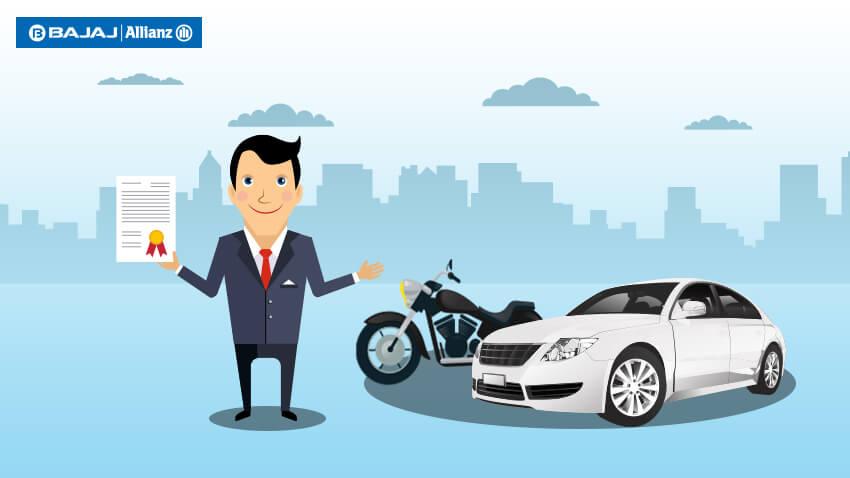Electric Vehicles, love them or hate them, they are going to be more common in the future. Electric scooters and bikes have started becoming extremely popular in India. They are affordable, environment friendly, easy to use and have lower running and maintenance costs. It makes sense to buy an electric bike or scooter for daily commutes within the city. However, it is imperative you remember that before these vehicles can be used on Indian roads, they must comply to a number of guidelines established by the Regional Transport Office (RTO). The government has made the EV policy in India governing the electric bikes and scooters quite straightforward and user-friendly, which aids in the promotion of electric vehicles over conventional ones.
This blog post will go over the RTO rules that electric scooters and bikes in India must follow before being purchased.

All Battery-Operated Two-wheelers are Not Considered Electric Scooters/Motorcycles
Electric vehicles with motors that produce less than 250W of power and have a top speed that does not exceed 25 kmph are referred to as electric bicycles. RTO regulations, such as insurance, taxes, registration, etc., do not apply to electric bicycles.
For all other electric two-wheelers all the below rules shall apply.
Registration
Registration with the RTO is the first and most important regulation that electric scooters and bikes must follow. Electric bikes and scooters must be registered with the RTO before they can be driven on Indian roads, just like any other type of vehicle. You must present the required paperwork, including the vehicle’s sales invoice, proof of address, and identification in order to register your electric bike or scooter. You will be given a registration number once the vehicle is registered, which you are required to display on the number plate of the vehicle. Electric Vehicles do get a special number plate which is green on colour with the white alpha-numeric characters for private vehicles. The commercial ones get a green number plate with yellow alpha-numeric characters. *
License
Having a valid driver’s licence is another requirement that electric scooter and bike riders must follow. The RTO regulations state that in order to operate an electric bike or scooter on Indian roads, you must possess a current licence. You could be fined or even be sent to jail if you don’t have a licence. Therefore, it is important to obtain a valid driving licence before purchasing and riding an electric scooter or bike. *
Helmet
According to RTO regulations, it is mandatory to wear a helmet when riding an electric bike or scooter. This lowers the possibility of major injuries if in accidents and ensures the rider’s safety. If you are caught riding without a helmet, fines and penalties will apply like they would for regular two-wheelers. *
Vehicle Specifications & Subsidies
The RTO regulations and ARAI standards stipulate that electric scooters and bikes must adhere to a number of vehicle specifications. The vehicle’s weight, maximum power output, and battery voltage are among these specifications.
In order to promote adoption of electric vehicles, the government has also put in place a subsidy policy. These subsidies are directly given to the manufacturers which are in turn passed on to the buyers. Some states also provide additional subsidies that are passed on directly to the buyers. The subsidies are calculated and given based on the specifications of the electric bikes or scooters. *
Insurance
Electric scooters and bikes must be insured in accordance with RTO regulations just like any other vehicle. The rider will be protected by the insurance policy from any harm or losses sustained while operating the vehicle. Before riding your electric scooter or bike on Indian roads, it’s crucial to make sure your electric vehicle insurance policy is up to date.
While only a third-party insurance is mandatory, a comprehensive electric bike insurance or electric scooter insurance is much better than just a third-party coverage. It covers the rider, the pillion and damages done the electric bike or electric scooter as well. *

Road Taxes
According to RTO regulations, electric bikes and scooters are also subject to road taxes. The road tax is a charge made to the government in exchange for using the road system. Electric bikes and scooters have relatively low road taxes when compared to other types of vehicles, making them an affordable option for riders. *
Pollution Certificate
As electric scooters and bikes are eco-friendly and have zero tail-pipe emissions, they are exempted from obtaining a Pollution Under Control (PUC) certificate.
In summary, the rules and regulations for electric bikes and scooters are pretty much similar to that of a regular petrol-powered bike or scooter. There are a couple of exceptions like lower road tax and no PUC certificate. It is important that one understands these rules as they have been made to protect the rider and others using the roads.
* Standard T&C apply
Insurance is the subject matter of solicitation. For more details on benefits, exclusions, limitations, terms and conditions, please read sales brochure/policy wording carefully before concluding a sale.

